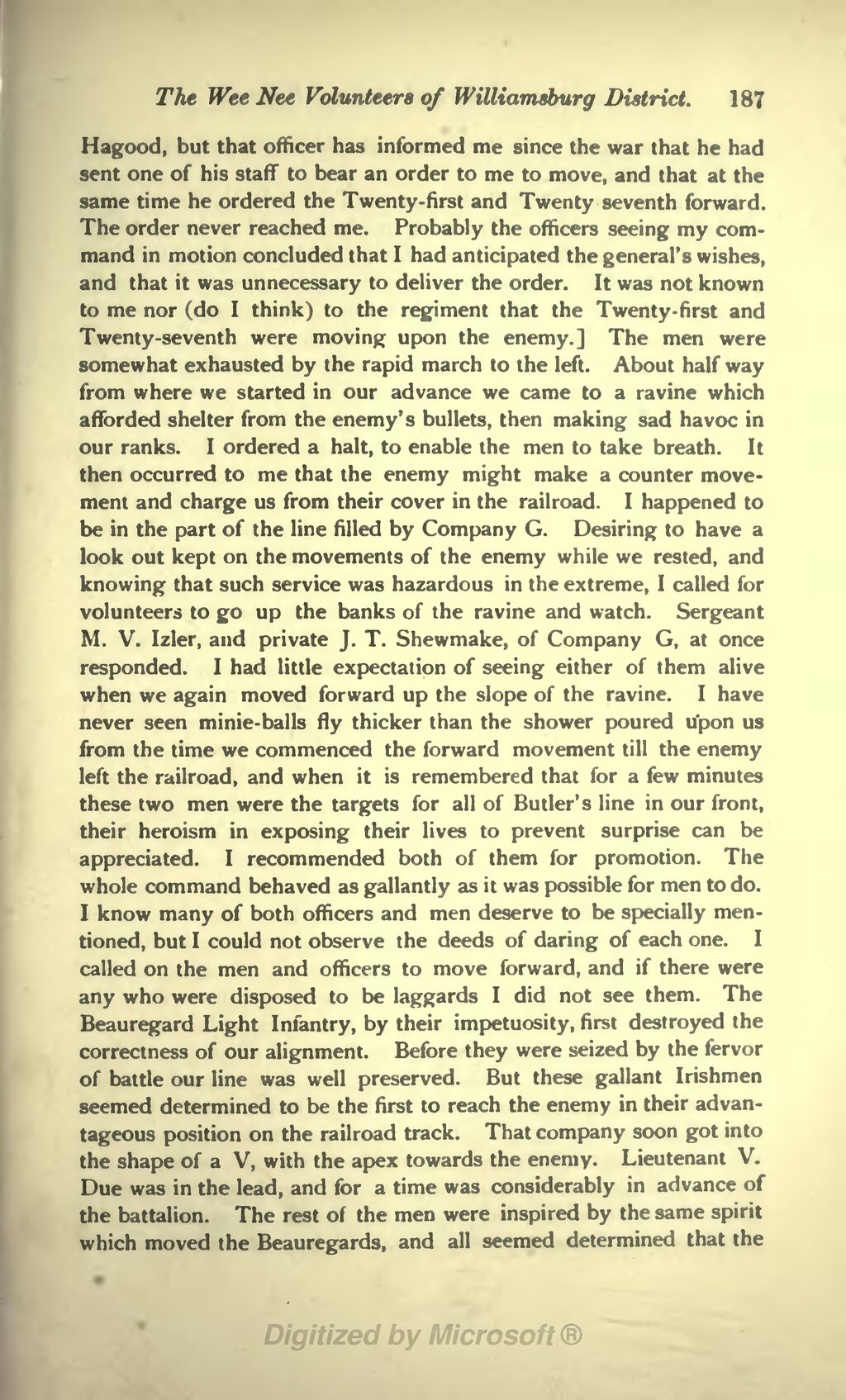The Wee Nee Volunteers of Williamaburg District. 187
Hagood, but that officer has informed me since the war that he had sent one of his staff to bear an order to me to move, and that at the same time he ordered the Twenty-first and Twenty seventh forward. The order never reached me. Probably the officers seeing my com- mand in motion concluded that I had anticipated the general's wishes, and that it was unnecessary to deliver the order. It was not known to me nor (do I think) to the regiment that the Twenty-first and Twenty-seventh were moving upon the enemy.] The men were somewhat exhausted by the rapid march to the left. About halfway from where we started in our advance we came to a ravine which afforded shelter from the enemy's bullets, then making sad havoc in our ranks. I ordered a halt, to enable the men to take breath. It then occurred to me that the enemy might make a counter move- ment and charge us from their cover in the railroad. I happened to be in the part of the line filled by Company G. Desiring to have a look out kept on the movements of the enemy while we rested, and knowing that such service was hazardous in the extreme, I called for volunteers to go up the banks of the ravine and watch. Sergeant M. V. Izler, and private J. T. Shewmake, of Company G, at once responded. I had little expectation of seeing either of them alive when we again moved forward up the slope of the ravine. I have never seen minie-balls fly thicker than the shower poured upon us from the time we commenced the forward movement till the enemy left the railroad, and when it is remembered that for a few minutes these two men were the targets for all of Butler's line in our front, their heroism in exposing their lives to prevent surprise can be appreciated. I recommended both of them for promotion. The whole command behaved as gallantly as it was possible for men to do. I know many of both officers and men deserve to be specially men- tioned, but I could not observe the deeds of daring of each one. I called on the men and officers to move forward, and if there were any who were disposed to be laggards I did not see them. The Beauregard Light Infantry, by their impetuosity, first destroyed the correctness of our alignment. Before they were seized by the fervor of battle our line was well preserved. But these gallant Irishmen seemed determined to be the first to reach the enemy in their advan- tageous position on the railroad track. That company soon got into the shape of a V, with the apex towards the enemy. Lieutenant V. Due was in the lead, and for a time was considerably in advance of the battalion. The rest of the men were inspired by the same spirit which moved the Beauregards, and all seemed determined that the
